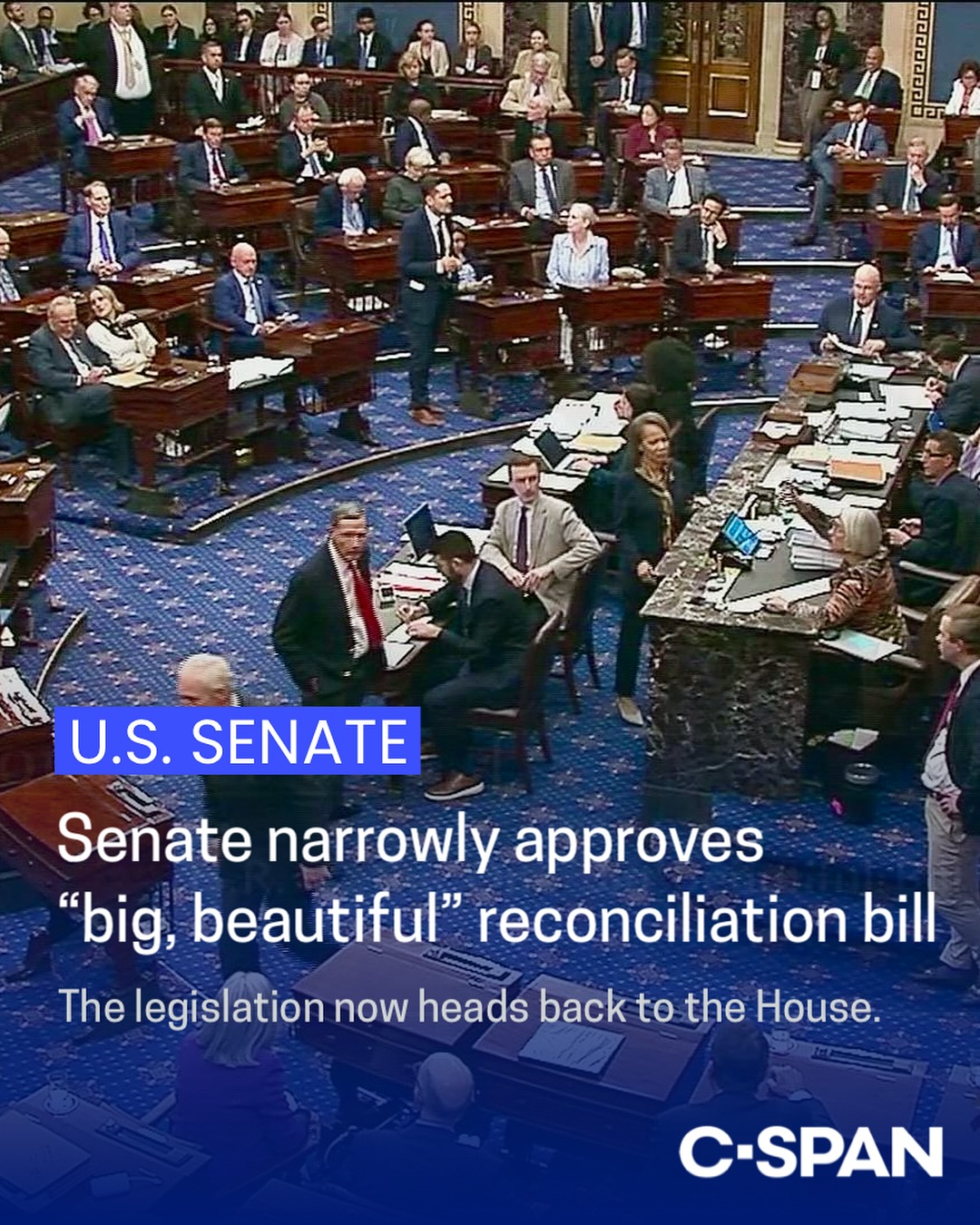Moving the legislation a step closer to becoming law, the United States Senate on Tuesday morning voted to approve President Donald Trump’s expansive domestic policy package that he calls a "one big, beautiful bill."

The final vote was 51-50, with Vice President JD Vance casting the tie-breaking vote after three Republicans joined all Democrats in opposing the measure.
The vote came after a grueling overnight session that stretched more than 24 hours. Senators considered dozens of proposed amendments, while GOP leaders extended the proceedings in a last-minute push to sway hesitant members. In the end, they secured just enough support with a sweeping amendment, which also passed by a 51-50 margin.
The bill will cause some 17 million Ameircans to lose health care, according to KFF, an independent source of health policy research.
"In total, due to the One Big Beautiful Bill Act and other policy changes, the number of people without health insurance is expected to increase by about 17 million. If all of this comes to pass, it would represent the biggest roll back of health insurance coverage ever due to federal policy changes," KFF's Cynthia Cox posted on Tuesday.
One pivotal vote came from Sen. Lisa Murkowski (R-Alaska), the chairperson of the U.S. Senate Committee on Indian Affairs, who had voiced strong reservations about the bill’s deep cuts to social safety net programs.
“I struggled mightily with the impact on the most vulnerable in this country, when you look to Medicaid and SNAP,” Murkowski said after the vote. “I didn’t get everything I wanted, but I had to look at the bill on balance.”
In the end, Murkowski voted for more funds directed to her own state, not necessairly for the good of the country.
“To address the bill’s shortcomings, we have helped our communities through a $50 billion rural health fund. This will mean hundreds of millions of dollars for Alaska hospitals, community health centers, and other providers,” she said in a statement her office released to Native News Online.
“In the SNAP program, we have added tribal exemptions for work requirements, delayed cost-share penalties to help Alaska get benefits to the people who need them, and included work requirement waivers that align with our Medicaid policies. We also secured commitments from the Secretary of Agriculture to provide additional flexibilities to Alaska for SNAP.”
Opposing the final legislation were Republican Sens. Rand Paul (Ky.), Thom Tillis (N.C.), and Susan Collins (Maine), alongside all 47 Democrats. Paul cited concerns over the bill’s impact on the federal deficit, while Tillis and Collins objected to what they saw as excessively harsh Medicaid cuts.
The bill now returns to the House of Representatives, which may make changes to the Senate version of the bill.
Rep. Sharice Davids (D-Kan.), a tribal citizen of the Ho-Chunk Nation, voiced her opposition following Tuesday’s vote, stating she cannot support legislation that hands tax breaks to billionaires.
“It gives huge tax breaks to billionaires – while raising costs and cutting services for everyone else. It rips health care away from thousands of Kansans. It takes food off the tables of hardworking families. It means higher utility bills. And it blows up our debt and deficit,” Davids said.
More Stories Like This
Native News Weekly (August 25, 2024): D.C. BriefsNative News Weekly (March 1, 2026): D.C. Briefs
Scope Narrowed, Report Withheld: Questions Mount Over Michigan Boarding School Study
Zuni Youth Enrichment Project Announces Family Engagement Night and Spring Break Youth Programming
Next on Native Bidaské: Leonard Peltier Reflects on His First Year After Prison
Help us defend tribal sovereignty.
At Native News Online, our mission is rooted in telling the stories that strengthen sovereignty and uplift Indigenous voices — not just at year’s end, but every single day.
Because of your generosity last year, we were able to keep our reporters on the ground in tribal communities, at national gatherings and in the halls of Congress — covering the issues that matter most to Indian Country: sovereignty, culture, education, health and economic opportunity.
That support sustained us through a tough year in 2025. Now, as we look to the year ahead, we need your help right now to ensure warrior journalism remains strong — reporting that defends tribal sovereignty, amplifies Native truth, and holds power accountable.
 The stakes couldn't be higher. Your support keeps Native voices heard, Native stories told and Native sovereignty defended.
The stakes couldn't be higher. Your support keeps Native voices heard, Native stories told and Native sovereignty defended.
Stand with Warrior Journalism today.
Levi Rickert (Potawatomi), Editor & Publisher

